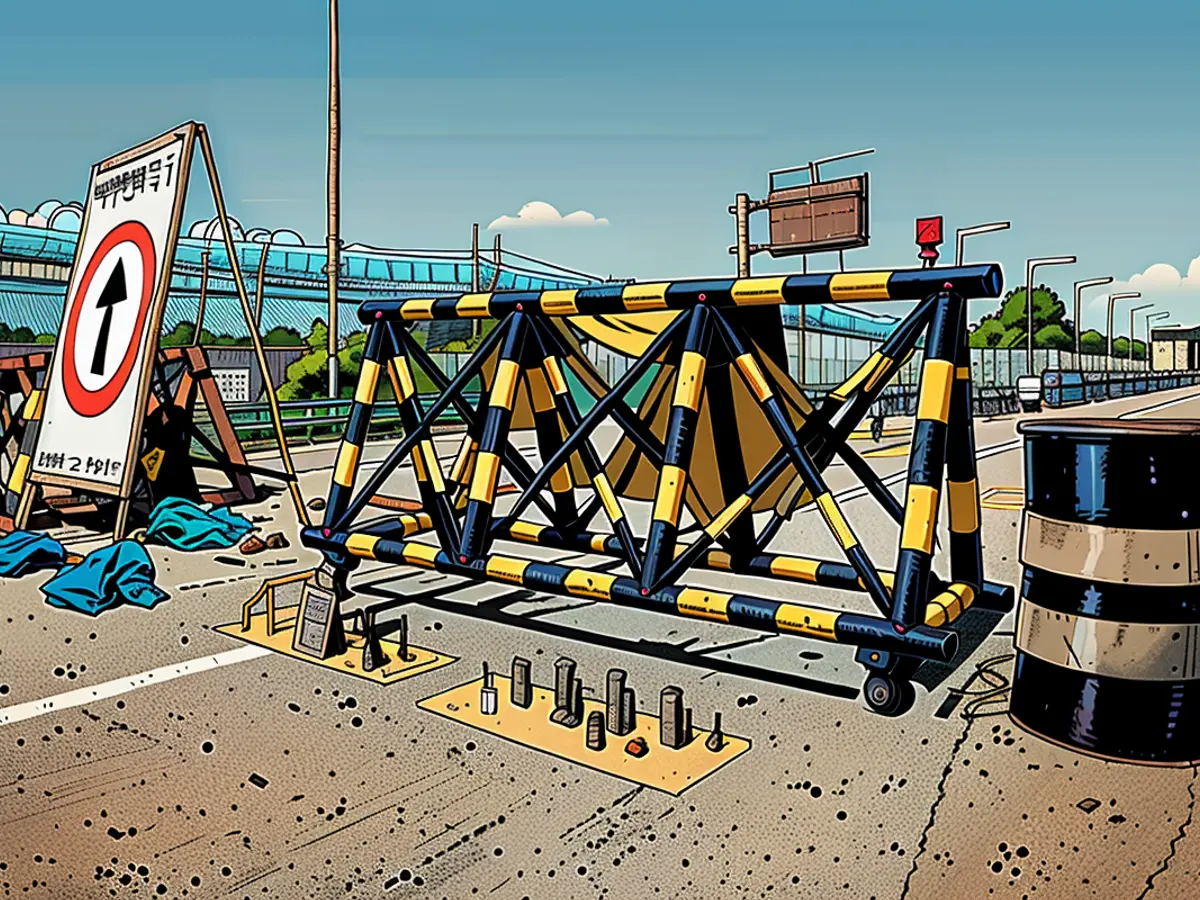North Korea intends to sever land and rail communications with South Korea.
The statement, following North Korean leader Kim Jong Un abandoning his long-standing policy of aiming for peaceful reunification with South Korea earlier this year, declared that all remaining roads and railways connecting to the South would be completely severed, effectively sealing off the border.
According to a communique released by the Korean People's Army (KPA) General Staff on North Korea's state-run news agency KCNA, the escalating military situation on the Korean peninsula necessitates stronger measures from the DPRK military to better safeguard national security.
Since January, Pyongyang has reinforced its border defenses, setting landmines, constructing anti-tank obstacles, and dismantling railway infrastructure, as reported by the South Korean armed forces.
Kim's rhetoric towards the South has also grown more hostile, referring to it as the North's "primary adversary" and "unchanging main enemy," a description mirrored in the latest KPA statement.
The military measures were a reaction to recent "military drills" conducted in South Korea and the presence of US strategic nuclear assets in the region, according to the KPA General Staff. Over the previous year, American aircraft carriers, amphibious assault ships, long-range bombers, and submarines have visited South Korea, prompting harsh reprimands from Pyongyang.
Hong Min, a senior research fellow at the Korea Institute for National Unification in Seoul, believes that North Korea's latest move formally solidifies work already underway along its militarized border and hints at the possibility of it being constitutionalized in the future.
"If North Korea were to enact a new territorial clause through constitutional amendment and terminate its relationship with the South, the internal and external consequences would be catastrophic," Hong said to CNN. "It appears North Korea is attempting to navigate this situation by adjusting the degree of its actions."
Escalating tensions
Inter-Korean conflict has been brewing this year as North Korea seems to be stepping up its nuclear production efforts and strengthening relations with Russia, stoking significant concerns about the closed-off nation's trajectory in the West.
Last week, Kim issued threats to utilize nuclear weapons to obliterate South Korea if attacked, following South Korean President Yoon Suk Yeol's warning that if North Korea utilized nuclear weapons, its regime would "face its demise."
Kim's statements appeared to be a direct response to the showcase of Seoul's most potent ballistic missile and other weapons designed for deterrence against North Korean threats during a parade for Armed Forces Day on October 1.
Leif-Eric Easley, a professor at Ewha Womans University in Seoul, suggested that the Korean army's announcement might be an attempt by Pyongyang to "shift blame for its economic failures and legitimize its investment in missiles and nuclear weapons" by exaggerating external threats.
"Kim Jong Un wishes both domestic and international audiences to believe he is acting out of military strength, but he might be actually driven by political weakness," Easley said. "North Korea's threats, whether real or rhetorical, reflect the survival strategy of a hereditary dictatorship."
North and South Korea have remained separated since the Korean War concluded in 1953 with an armistice agreement. Despite both governments pursuing the shared goal of one day unifying, they remain technically at war.
In January, Kim declared that North Korea would no longer pursue reconciliation and unification with South Korea, labeling inter-Korean relations as "a relationship between two hostile nations and two warring states," according to KCNA at the time.
In its statement, the North Korean army notified US forces on Wednesday morning to "prevent any misunderstanding or accidental conflict" over its "border fortification project."
CNN has reached out for comment to the United Nations Command, a multinational military force responsible for maintaining security along the heavily fortified DMZ dividing North and South Korea.
Given the escalating tensions between North and South Korea, concerns about North Korea's nuclear ambitions and relations with Russia have heightened worldwide. These developments in Asia pose significant challenges to peace and stability in the world.







